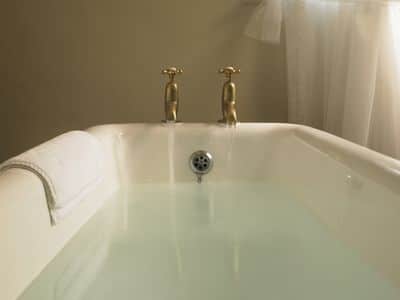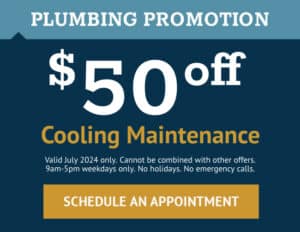The summer months are arguably the best time of the year. No school in session. Extra BBQs with family and friends on the weekends – socially distanced this year, of course. And there’s not like lazing the day away next to the pool. Summer can also mean more water- for the yard, all the activities, and you and your house in general. But just because you’re using more water doesn’t mean you have to be paying more on your water bill! Here are some summer plumbing tips to keep you (and your water bill) cool during those hot summer months.
Clogged Drains
When you start to use more water, you increase the chances of your pipes getting clogged. Clogged drains lead to backed-up water that can add pressure to your pipe system, causing the pipes immense stress and shortening their lifespan. Some preventative plumbing measures you can take to avoid clogged drains include:
- Installing mesh screens over drains in showers, tubs, and pools: This way you can pull out debris (like hair, leaves, and other garbage) from the drain whenever it starts to get clogged – preventing a worse buildup or clog.
- Never put food down a drain: This seems like a no-brainer, but if you don’t have a garbage disposal, you should never put food straight down a drain, because it will immediately start to clog your drain and your pipes.
- Properly dispose of grease: Greasy liquids can clog up your drains and pipes by solidifying when they become room-temperature.
Low Water Pressure
Most people love intense, high-pressure showers. But believe it or not, the higher the water pressure, the more stress on your pipes! More stress means a higher likelihood of leaks. Also, the more stress the pipes are under the harder they have to work to get your water from point A to point B. A leaky pipe is a red flag for a weakened plumbing system. A good preventative plumbing measure you can take to ensure that you don’t put unnecessary pressure on your pipes is to set a low water pressure for your home.
Slow Draining Tub
One of the biggest annoyances is a slow draining bathtub (or shower). A slow draining tub usually indicates that there’s a clogged drain or a clog in your pipes. If you find your bathtub is taking an extra-long time to drain, you can try using baking soda and vinegar to clear the clog: This is a safer, organic alternative to using chemicals.
If this method doesn’t work, you should reach out to your local plumber to come by and take a look as they have the training and tools to recommend a fix without damaging your plumbing system.
Outdoor Drain Clogged
Just like their indoor cousins, outdoor drains can become clogged, too, causing flooding and permanent damage to your yard and home. Always make sure your outdoor drains are clear of any debris and are in a place that’s easy for water-runoff to flow. If an outdoor drain does become clogged, it’s often best to immediately call a professional plumber, as they have more tools at their disposal for quickly and effectively clearing the clog. Remember: the longer you let a drain stay clogged, the more damage it can cause!
Running Toilet
A running toilet can easily increase your water bill in a matter of hours. If you notice that after flushing your toilet is continuously running water (even minutes after you last flushed), you have a problem. There are a couple ways to stop a running toilet, including:
- Install new toilet hardware: Another DIY project you can do to stop a running toilet is to install new toilet hardware, like the lift chain, the wire, the flapper, and/or the flush valve.
- Lower the float: The simplest solution for a running toilet is to check the water in the tank. If the tank has too much water in it, it will continue to drain water into the overflow tube, causing the toilet to continuously run.
If none of these DIY methods make a difference, it might be time to call a plumbing professional out to further investigate the problem.
Hose Bib Leaking
This plumbing problem is oftentimes overlooked… until the winter when the hose bib (or hose spigot) freezes over and bursts. If you had a leaking hose bib all winter, now is the time to put your summer plumbing tips to use!
The best way to prevent hose bib leaking is to detach any hoses from the spigot when the hose is not in use. Even if it’s hot outside, you should not leave hoses hooked up to the spigot, because when they are hooked up the water doesn’t drain, but instead sits inside of the hose bib. If there is water left sitting inside the hose bib when the weather gets colder, the leftover water will freeze and expand, causing cracks in the pipes and eventually resulting in leaks. Once you have a leaky pipe, it doesn’t matter what month of the year it is – it will always leak.
Preventative Plumbing Measures
Taking preventative plumbing measures is easier than you think. No matter if it’s cold outside, tepid, or blazing hot, you should always take good care of your pipes, drains, and plumbing systems. After all, the better care you take of them now, the longer they’ll last and the lower your water bills will be!
About Flotechs Plumbing and Heating
Flotechs Plumbing and Heating operates in Westchester County and serves both residential and commercial customers. We offer free estimates, a 1-year warranty on our workmanship, and we can assist with your manufacturers’ warranties.



